|
|
Information and Numerical Data Management
|
Oral and Written Communication
|
Differential Calculus
|
Mechatronic Systems
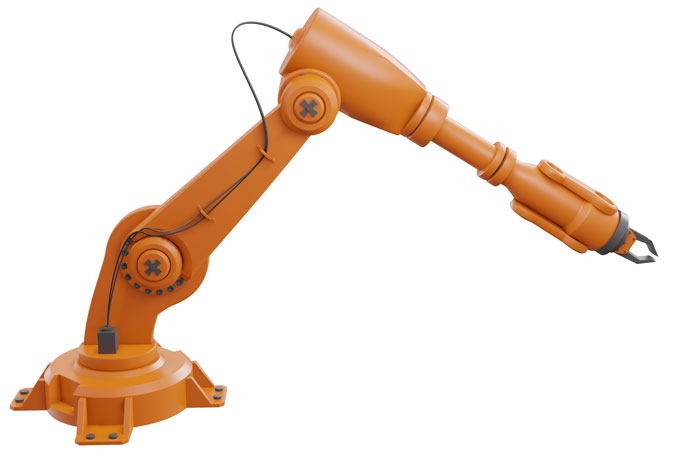 In this course you will work on exercises and projects where you will study the kinds of concepts, techniques and methods that Mechatronics engineers use, so that you learn about their field of action and identify the disciplines that they draw on in their day-to-day work designing automatic systems.
In this course you will work on exercises and projects where you will study the kinds of concepts, techniques and methods that Mechatronics engineers use, so that you learn about their field of action and identify the disciplines that they draw on in their day-to-day work designing automatic systems. |
|
Languages
|
|
|
|
|
|
Knowledge and Culture
|
Integral Calculus
|
Linear Algebra
|
Electronic Systems
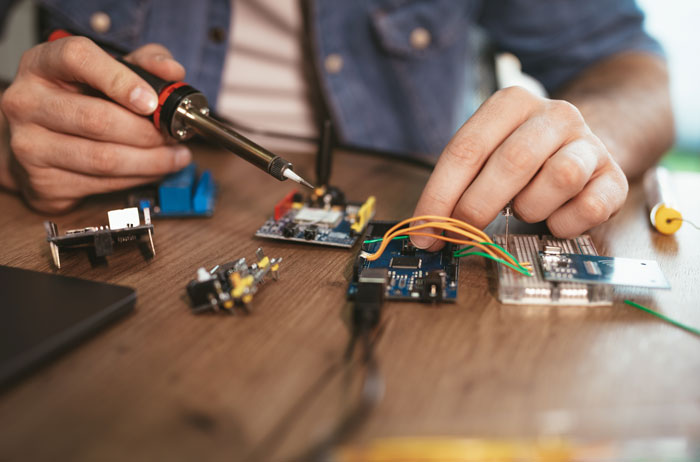 In this course you will develop the skills needed to analyze direct and alternating-current electronic systems. In order the achieve this objective, you will do simulations and experiments, and develop prototypes.
In this course you will develop the skills needed to analyze direct and alternating-current electronic systems. In order the achieve this objective, you will do simulations and experiments, and develop prototypes. |
|
Mechanical Systems
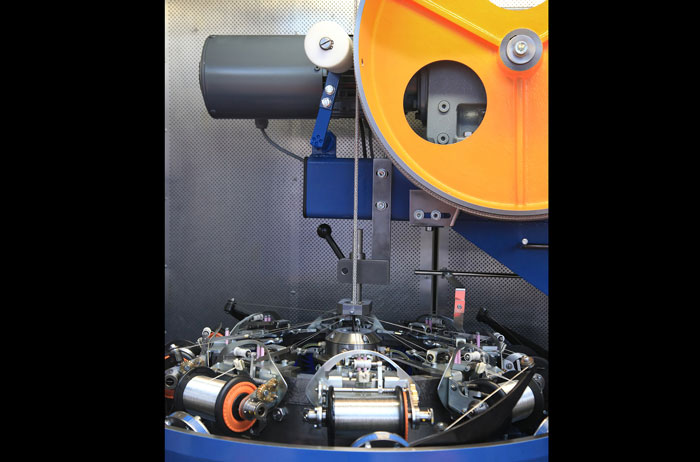 In this course you will study strategies for determining the internal reactions and forces of a certain body, as well as their effect on the state of movement. You will also learn to materialize your mechanisms using software and digital manufacturing equipment.
In this course you will study strategies for determining the internal reactions and forces of a certain body, as well as their effect on the state of movement. You will also learn to materialize your mechanisms using software and digital manufacturing equipment. |
|
Languages
|
|
|
|
|
Socio-historical Context
|
Algorithms and Programming
|
Deformable Solids
|
Analysis and Modeling of Mechatronic Systems
 In this course you will make mathematical, computer and physical models of dynamic systems, in order to analyze the feasibility of their design and the efficient use of resources in their implementation.
In this course you will make mathematical, computer and physical models of dynamic systems, in order to analyze the feasibility of their design and the efficient use of resources in their implementation. |
|
Languages
|
|
|
|
|
|
Ethics, Identity and Profession
|
Differential Equations
|
Fundamentals of Digital Systems
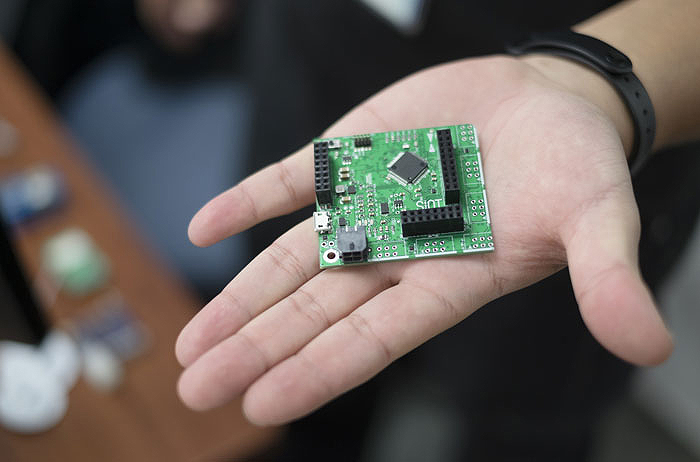 In this course you will learn the fundamentals of digital systems and develop the capacity to analyze and design circuits that digitally process information. By the end of the course you will be able to design simple calculators, digital data communication systems (like a TV remote control), systems activated by an electronic key, slot machines, etc.
In this course you will learn the fundamentals of digital systems and develop the capacity to analyze and design circuits that digitally process information. By the end of the course you will be able to design simple calculators, digital data communication systems (like a TV remote control), systems activated by an electronic key, slot machines, etc. |
|
Machine Element Design
|
Manufacturing Processes and Prototypes
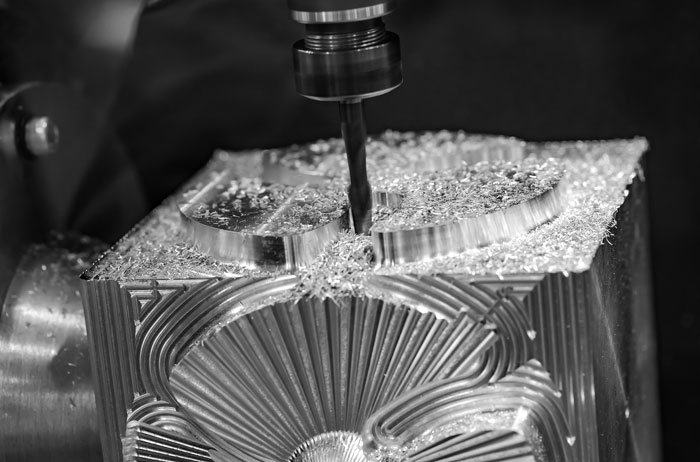 In this course you will learn the different manufacturing processes, as well as their operating parameters and scope, which will enable you to make well-informed choices when the time comes to materialize a concept as a working prototype. The processes you will study are: welding, extrusion, forging, laminating, milling, lathing and grinding.
In this course you will learn the different manufacturing processes, as well as their operating parameters and scope, which will enable you to make well-informed choices when the time comes to materialize a concept as a working prototype. The processes you will study are: welding, extrusion, forging, laminating, milling, lathing and grinding. |
|
Languages
|
|
|
|
|
Area of Contemporary Ethical Debates I
|
Programming Microcontrollers and Microprocessors
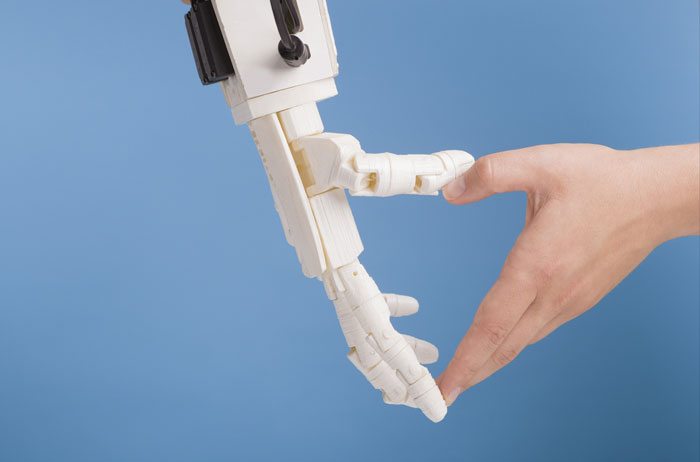 Most products and systems today define their behavior on the basis of a microcontroller or a microprocessor that monitors both the product or system and its surroundings, for the purpose of determining response actions. In this course, you will learn the main characteristics of these electronic systems; you will also develop a project in order to learn how to program, configure and implement them.
Most products and systems today define their behavior on the basis of a microcontroller or a microprocessor that monitors both the product or system and its surroundings, for the purpose of determining response actions. In this course, you will learn the main characteristics of these electronic systems; you will also develop a project in order to learn how to program, configure and implement them. |
|
Automatic Control Systems
|
Product Development
|
Manufacturing System Design
|
Elective I
|
Elective II
|
Languages
|
|
|
Area of Contemporary Ethical Debates II
|
Project Management
|
Electromechanical Elements
|
Integration of Embedded Systems
|
Robot Modelling and Control
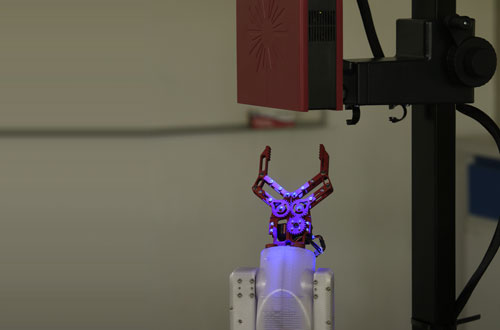 In this course you will learn how to model and control robots. You will learn how to carry out simulations that will allow you to validate models and control algorithms, enabling you to achieve the efficient implementation of the designed system in an actual robot. You will also learn how to select sensors and actuators for robots, depending on the application and the problem to be solved.
In this course you will learn how to model and control robots. You will learn how to carry out simulations that will allow you to validate models and control algorithms, enabling you to achieve the efficient implementation of the designed system in an actual robot. You will also learn how to select sensors and actuators for robots, depending on the application and the problem to be solved. |
|
Elective III
|
|
|
|
|
Innovation and Entrepreneurship
|
Artificial Intelligence
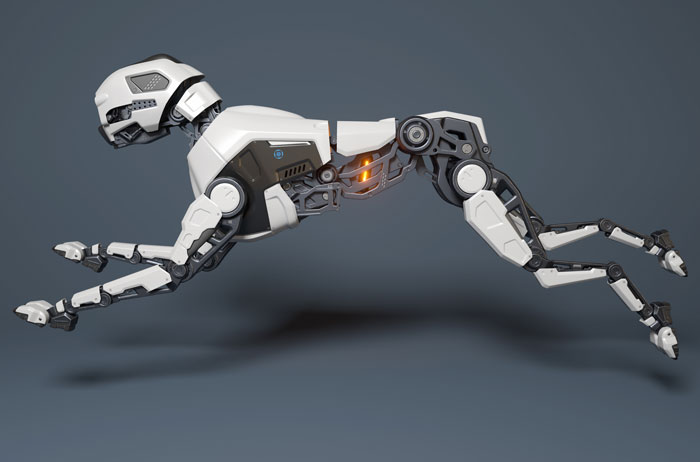 Artificial Intelligence (AI) is the combination of algorithms for the purpose of creating machines that feature the same rational capacities that a human being has. In this course you will implement AI schemes to solve mechatronic problems such as automatic control, system identification, estimation of variables, and autonomous vehicle navigation.
Artificial Intelligence (AI) is the combination of algorithms for the purpose of creating machines that feature the same rational capacities that a human being has. In this course you will implement AI schemes to solve mechatronic problems such as automatic control, system identification, estimation of variables, and autonomous vehicle navigation. |
|
Mechatronic Project: Requirements
|
Professional Application Project I
|
|
|
|
|
|
|
Mechatronic Project: Verification and Validation
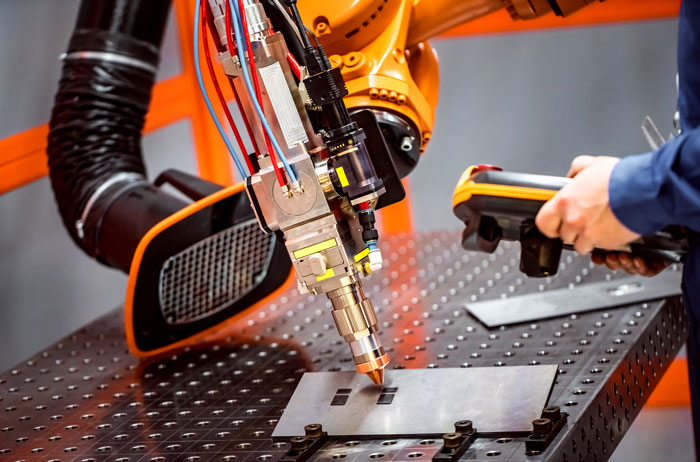 By carrying out a project you will learn how to verify, validate and test a mechatronic product or system, in order the assess whether it complies with a regulation, requirement, specification or imposed condition, and thus ensure that it meets the needs of the client and other stakeholders.
By carrying out a project you will learn how to verify, validate and test a mechatronic product or system, in order the assess whether it complies with a regulation, requirement, specification or imposed condition, and thus ensure that it meets the needs of the client and other stakeholders. |
|
Professional Application Project II
|
Elective IV
|
Elective V
|
|
|
|
|












